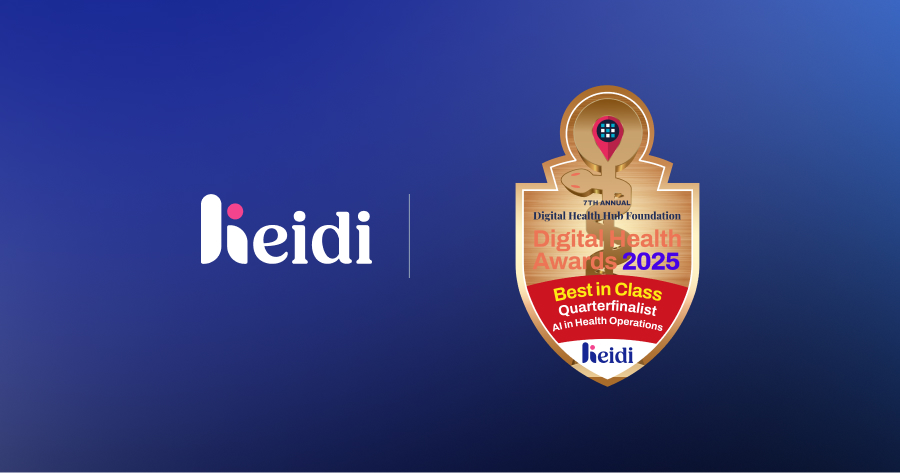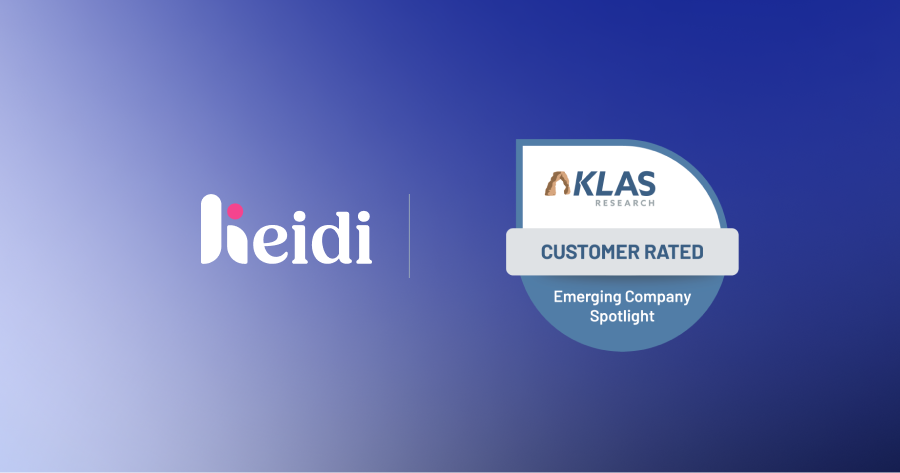AI Medical Scribe: Legal Implications and Regulatory Considerations

What are the Legal Implications of AI Medical Scribes?
AI medical scribes aim to eliminate human workload during documentation. However, their growing use has resulted in clinicians and administrators raising questions about data security, privacy, governance and transparency.
Ensuring compliance with privacy laws and medical standards has always been a legal imperative for any healthcare technology—and AI medical scribes are no exception.
Patient comfort and trust must remain central when using this new technology. As regulatory measures evolve across jurisdictions, providers need to stay abreast of practices and procedures to safeguard patient data and maintain accountability.
In this article, we explore the key legal considerations, from data privacy to regional regulatory frameworks, how they shape the responsible use of AI medical scribes, and how clinicians can gain confidence in using the world’s most compliant AI medical scribes.
Why is Patient Safety Critical When Using AI Medical Scribes?
Patient safety is critical when using AI medical scribes because sensitive data such as personally identifiable information (PII) and protected health information (PHI) are used in the documentation process.
Healthcare providers are responsible for the appropriate use of AI medical scribes. Therefore, it is crucial to mindfully handle this technology that handles sensitive medical information. For instance, an AI-generated output may contain a minor inaccuracy, which if not corrected by the clinician could lead to patient harm.
Local Regulations AI Medical Scribes Must Meet
To uphold patient data privacy and security, AI medical scribe companies must adhere to regional healthcare privacy and data security regulations. As use cases grow in varying degrees, terminologies are defined differently per region. Let’s take a look at existing legislation and how AI medical scribes are regulated to ensure the protection and privacy of patient information.
Legal Implications of AI Medical Scribes in the USA
AI medical scribes are growing in use across the US, but they raise potential legal concerns. Under HIPAA, any tool handling PHI must follow strict rules on data security. Healthcare service providers also need to sign Business Associate Agreements (BAAs) with medical scribe companies to stay HIPAA-compliant.
Liability is another issue. If an AI medical scribe records something incorrectly and it leads to harm, who is responsible? Clinicians are expected to review all notes and retain responsibility for ensuring accuracy, but unclear boundaries can create risk. Many health systems now use internal checks and disclaimers to reduce exposure.
Most scribes aren’t regulated by the US Food and Drug Administration (FDA) yet, as they don’t offer medical advice. But that could change. If these tools begin to guide care decisions, they may fall under Software as a Medical Device (SaMD) rules. Providers should stay alert as the regulatory landscape evolves.
Legal Implications of AI Medical Scribes in Canada
In Canada, organizations offering AI medical scribes are under the federal privacy law Personal Information Protection and Electronic Documents Act (PIPEDA). Since there are territorial jurisdictions in some provinces, PIPEDA applies once medical information is shared outside the vicinity.
Protection of PII further goes under provincial jurisdiction, like the Personal Information Protection Act (PIPA) in British Columbia and Alberta. In addition, Ontario has its own provincial regulations concerning PHI, and they are protected under the Personal Health Information Protection Act of 2004 (PHIPA).
Some Canadian AI scribe regulations revolve around stricter measures on data residency. For example, Ontario's PHIPA strengthens security and control over PHI, regardless of storage location. This permits cross-border information transfer, provided adequate safeguards are in place to protect the PHI.
Legal Implications of AI Medical Scribes in Australia
AI medical scribes are gaining interest in Australia as providers look for ways to reduce administrative burden and streamline documentation workflows. However, any tool that handles patient data must comply with the Privacy Act 1988 and the Australian Privacy Principles (APPs). This includes clear patient consent, secure data handling, and transparency in how information is used.
While some digital health tools interact with the My Health Record system and are subject to the My Health Records Act 2012, most AI scribes do not directly integrate with it. Instead, their use is governed by broader privacy and healthcare data regulations.
Currently, AI medical scribes are generally exempt from regulation by the Therapeutic Goods Administration (TGA). This is because they are considered admin documentation tools, not software that supports diagnosis, treatment, or clinical decision-making. If they gain such capabilities, they may be reclassified as SaMD and require Australian Register of Therapeutic Goods (ARTG) listing.
For Australian entities, data sovereignty is key in considering legal implications. Healthcare providers must ensure AI medical scribe companies handle data under Australian law with safeguards for storage, transfer, and access. As regulatory frameworks evolve, particularly in digital health and AI, these tools may face new compliance obligations in the near future.
Legal Implications of AI Medical Scribes in the UK
Usage of AI medical scribes in the UK must align with the National Health Service (NHS) and EU’s General Data Protection Regulation (GDPR) standards. These regulations allow individuals to have more control over their data. At the same time, they outline rules for organizations–how they collect, use, store, and protect data.
Moreover, NHS organizations must follow Data Security and Protection Toolkit (DSPT) requirements for handling PHI. The DSPT is an online system that annually assesses legal compliance requirements for AI medical scribe companies that access NHS patient data.
Whether an AI scribe is considered a medical device depends on its functionality. If it assists in clinical decisions or diagnoses, it may be regulated under the Medicines and Healthcare products Regulatory Agency (MHRA) as SaMD. In such cases, the tool must meet UK Conformity Assessed (UKCA) marking requirements and be registered with MHRA.
AI Medical Scribe Certifications and Privacy Measures
To demonstrate commitment and compliance with robust privacy and cybersecurity protocols, AI medical scribe companies can seek a variety of data security certifications. Following global guidelines and best privacy measures has always been a priority for Heidi, which meets or exceeds healthcare privacy and security regulations worldwide.
Below are some of the main certifications to look for in an AI medical scribe.
ISO 27001 Certification
An AI medical scribe that has an ISO 27001 certification is ensured to be built with a solid information security management system (ISMS). This international certification ensures AI scribes companies are proactive in managing cyber-risks. Heidi’s AI medical scribe is certified with this gold standard in managing information security.
SOC 2 Type II Certification
The SOC 2 Type II certification is another popular type of cybersecurity audit. It is a security and controls (SOC) report ensuring that AI medical scribe providers protect information across five trust principles, namely: security, availability, processing integrity, confidentiality, and privacy.
In addition, this certification provides assurance to both stakeholders and customers that their data is protected over a certain time period. Heidi made sure that its product meets high standards for security, confidentiality, and availability by completing this certification.
Non-retention Policies
It is imperative for medical AI scribes to let customers know the conditions around information storage. Duration of retention is often overlooked, but this is a key privacy consideration before purchasing an AI scribe license.
With Heidi, clinicians retain full control over any data storage that occurs on the platform. Heidi only stores transcripts and notes—never audio. You can delete your data manually and on a predetermined schedule. We never share your data with third parties and once information is deleted from Heidi it’s gone forever. .
De-identification and Pseudonymization
Heidi offers a convenient solution for safely utilizing AI scribes, particularly with sensitive information like PHI. It employs pseudonymization techniques by replacing personal names with "John Doe" equivalents. This automatic de-identification of patient information is achieved through the deployment of templates. Once patient information is de-identified, privacy obligations no longer apply.
Data Encryption
Data encryption adds a crucial layer of security for PHI. Combined with de-identification and pseudonymization, this prevents data from being read by unauthorized personnel. In the unlikely event that data is intercepted in transit or via a security breach, robust encryption techniques ensure the malicious actor only receives unintelligible code..
Heidi employs advanced encryption standards that maintain data integrity and in turn, builds trust between healthcare providers and patients. It doesn’t matter whether data is transmitted or stored–all data is encrypted for both scenarios.
Informed Consent
In some clinical contexts, informed consent is not strictly required. However, verbal, if not written, consent from a patient is always recommended for each visit when AI scribes are used. Unless permitted or required by law, Heidi will not use PHI without consent. Sensitive information will not be disclosed to any third parties as well.
When using AI scribes in the healthcare industry, gaining the trust of patients is the first key step to take. Patients will always come with questions and concerns regarding their own data security. That said, the role of medical practitioners is to encourage transparency and foster open communication. They bridge the gap between AI technology and patients’ comfort.
Thanks to Heidi, healthcare professionals can use an AI medical scribe with confidence that their practice is compliant. With a secure and robust documentation tool like Heidi, the primary role of clinicians from a legal perspective is to simply review AI generated documentation for accuracy before it’s placed on the medical record.
Try Heidi: Built with Patient Safety and Data Security in Mind
At Heidi Health, we have a world-class compliance team supporting us at the forefront of data safety with our AI medical scribe. Built for every clinical specialty, Heidi is securely yours to use. Here’s how you can start using Heidi:
- Transcribe: Open Heidi on your PC or mobile device and press ‘Start transcribing’ so it will capture your conversation with the patient in the background.
- Customize: After the session, select your preferred template and watch as Heidi perfectly captures the details of your conversation and context notes in the appropriate fields and format.
- Transform: Once it completes generating your template, you can ‘Ask Heidi’ to give additional documentation, as needed.
Heidi supports over 2 million patient consults every week, complying with global standards and regional regulations, ensuring data localization for customers in Australia, Canada, the United States, the United Kingdom, and beyond. Read more about our patient safety and data security compliance.
FAQs on AI Medical Scribes’ Legal Implications
What are the ethical implications of AI medical scribes in healthcare?
AI medical scribes raise a number of ethical implications in healthcare, and among them are informed consent, fairness, and accountability. A key concern is whether the tool introduces or amplifies bias based on accents, language, or other demographic factors. Healthcare providers play a key role by maintaining patient trust and being transparent on how AI medical scribes are used in clinical encounters.
Do you need patient consent to use AI scribes?
Yes. Obtaining patient consent is strongly recommended (and in many jurisdictions, legally required) each time AI medical scribes are used. Depending on local regulations, this consent may be given verbally or in writing. Laws governing medical audio recording vary per region, so patients must be informed about how their data is captured, stored, and used.
How secure is Heidi?
Heidi’s AI medical scribe is certified with international data security standards such as ISO 27001 and SOC 2 Type II. It is also compliant with healthcare privacy regulatory bodies across different markets, like GDPR, HIPAA, PIPEDA, APP, and more. More specifically, Heidi does not store audio recordings nor are they accessible after transcription. Heidi ensures patient data is handled with the highest level of integrity with this secure-by-design approach.
Dites bonjour à votre scribe médical IA.
Des notes plus intelligentes, de meilleurs soins.
Essayez Heidi - c'est gratuit.webp)
Know more. Feel clever.
No-nonsense goodies about the latest in MedTech from your friends at Heidi.
Meet your AI resident.
It’s like you, but less gorgeous.

.svg)

.svg)
.svg.webp)















%201.png)

.svg)






